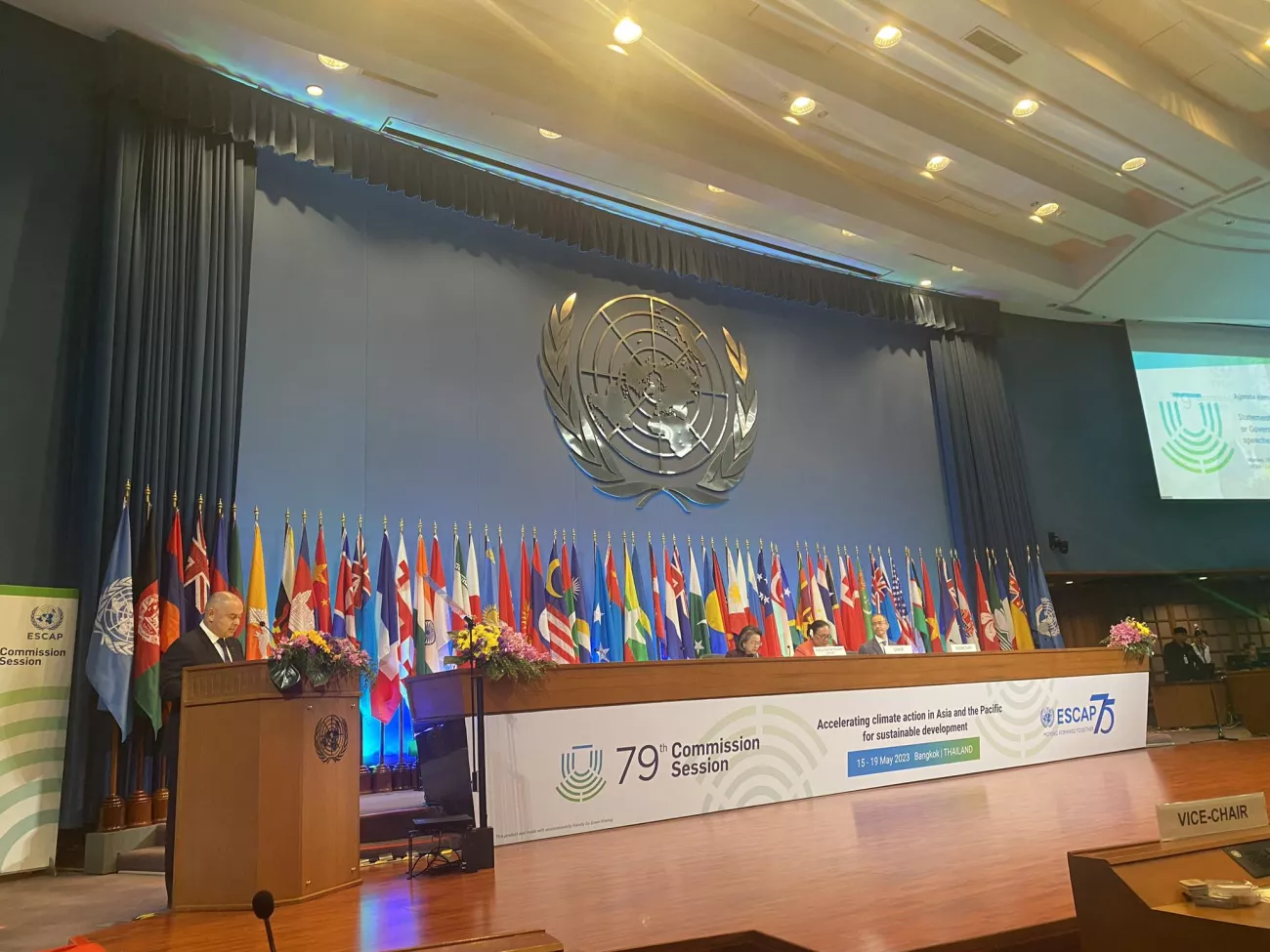
Excellencies,
Secretary General of the UN ESCAP,
Secretary General of the PIFS,
Colleagues, Friends and partners
Kia Orana and warm greetings.
I am honored to be given this opportunity to offer the Blue Pacific’s perspectives on this critical issue, and I thank my Colleagues for setting the scene quite comprehensively.
The Blue Pacific has been sounding the alarm on the urgent need to address loss and damage for decades, yet the response from the global community has been insufficient. In 1991, before the UNFCCC was adopted, Vanuatu proposed a mechanism to insure Small Island Developing States against permanent loss due to sea level rise.
Over 30 years later, and countless negotiations, a breakthrough finally occurred in Sharm-El-Sheik where countries agreed to establish funding arrangements, including a fund, to respond to loss and damage, with the aim of full operationalisation by the end of this year.
Ladies and gentlemen, we have no time to waste. The Blue Pacific is under siege, facing a relentless assault from both immediate and slow onset impacts of the climate crisis.
Furthermore, the best available science tells us that even with the most ambitious pathways toward reducing greenhouse gas emissions, the Pacific is and will experience loss and damage on a scale that would profoundly reshape our destiny – Our homes are being washed away, our communities are being displaced, and our livelihoods are being destroyed.
These remaining moments are critical for the Blue Pacific. So I pose this question again: How do we respond together? In my view, it begins and ends with conviction. We must have unwavering belief in our collective power to drive change and demand action to be successful.
Let us therefore demand steadfast commitment and decisive action to expedite the full operationlisation of a fit-for-purpose loss and damage financing facility. The availability of funding on demand and in substantial amounts is fundamental necessity for the Blue Pacific.
Colleagues, let me emphasise once again, that time is not our ally. Merely months ago, Vanuatu, the very nation that pioneered the call for loss and damage funding in 1991, experienced devastating impact of two consecutive category 4 cyclones within a span of three days. The magnitude of loss and damage inflicted upon a small developing country like Vanuatu is beyond comprehension.
This Fund needs to deliver now.
Let us also demand equitable representation and meaningful participation in the crucial process of the Transitional Committee tasked with finalising the loss and damage funding arrangements by years-end.
It is deeply disheartening to see the Pacific relegated to the sidelines despite our visionary outlook and proven leadership in forging a path to address loss and damage. If we are to be treated with the seriousness we deserve, we must be granted fair and inclusive access to these deliberations, ensuring transparency and legitimacy in negotiations that represent all parties to the UNFCCC. We look to our brothers and sisters in Asia for support.
Finally, let us demand urgent mobilisation of transformational financing mechanisms to ensure that vulnerable communities receive timely and adequate financial support to address loss and damage, particularly in the case of slow-onset impacts that continue to pose challenges in terms of measurement and quantification.
Colleagues, we know that loss and damage goes beyond what we can quantify in economic terms. Each day, our ancestral ties to customs and traditions face imminent threat from destructive forces. It is essential that we close the knowledge gaps surrounding these losses and damages, and deliver targeted assistance where and when it is most needed. The Pacific Resilience Facility, specifically tailored to address Pacific needs, is a prime avenue for any partner seeking genuine and impactful involvement in the region.
Friends, the Blue Pacific is paying the highest price for the world’s failure to act on the climate crisis. We are reaching the absolute limits of adaptation. We are falling deeper into debt. And we are losing the war on mitigation
Today, we have a unique opportunity to create a dedicated source of funding for loss and damage that is truly fit for purpose both now and in the long term.
Will the world finally heed the urgent call of the Blue Pacific and take decisive action to address the gravity of this slow killer?
I thank you.
Kia Orana e Kia Manuia.
